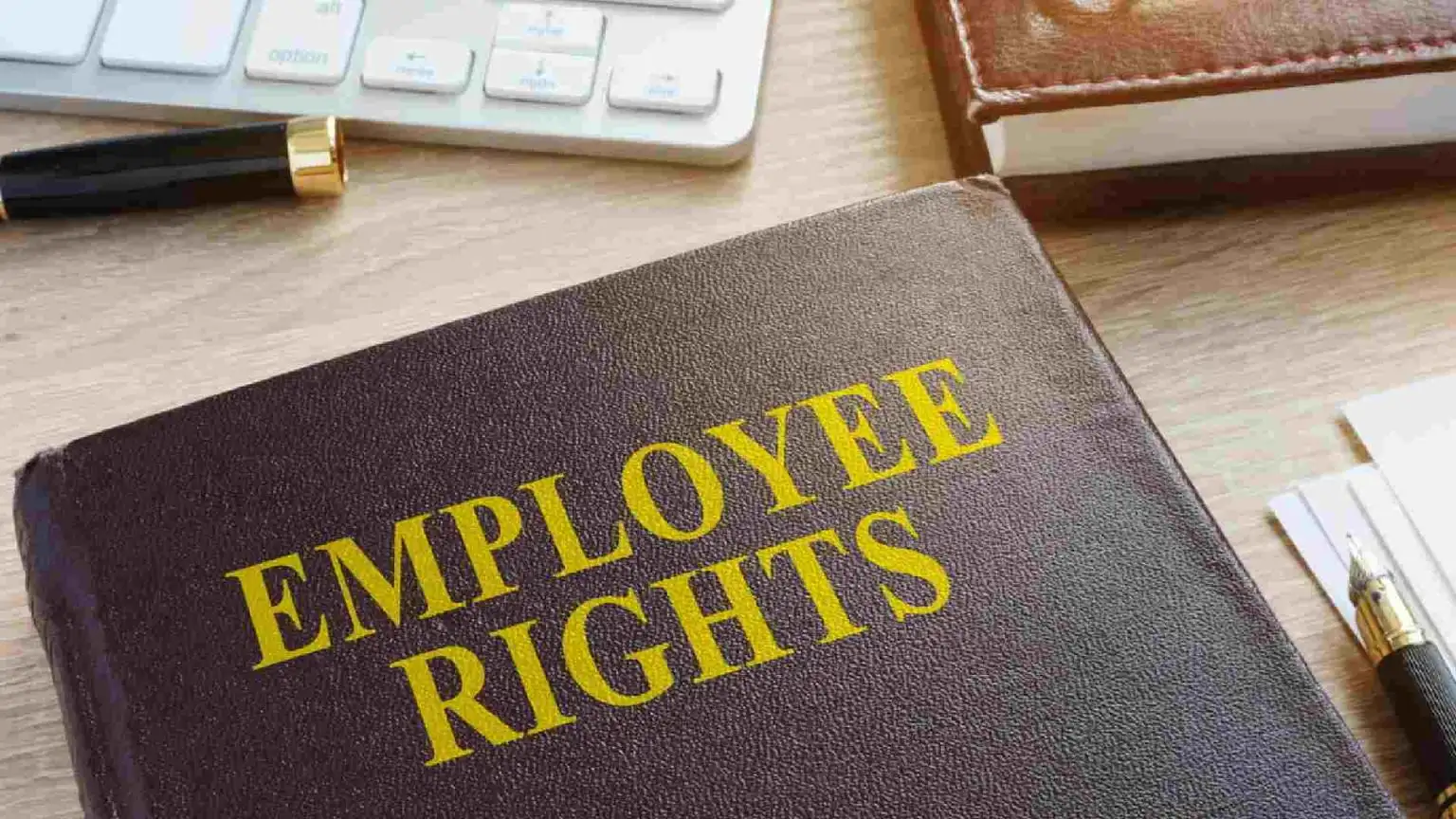Employees must know their legal rights, and the Employers must know their liabilities for the employment according to the UAE labor laws and regulations. Both parties must comply with the law as it’s beneficial to balance their position and avoid legal complexities. They must know and learn about the rules and regulations of the UAE labor law for safe employment and to build a healthy work relationship.
This guide will share all the relevant information about employee rights, employer responsibilities, and legal obligations to comply with the law. Let’s explore the detailed overview of UAE employment regulations for both employers and employees.
Employer Responsibilities under UAE Labour Law
Employers must be aware of their employment liabilities according to the UAE labor law. The essential employer liabilities for the employment are;
They must provide a secure and healthy work environment to the employees.
Providing fair pay and employee benefits.
Fair management for employee working hours and leaves according to the UAE regulations
The UAE labor law has defined all the employer responsibilities for employment, and these are a few points to consider from the pre-defined rules;
- Business working hours.
- Wages and salaries.
- Recruitment and UAE probation period.
- Annual leave entitlement.
- Maternity leave, sick leave , and other types of leave.
- Standards on employee work safety to ensure a healthy environment.
- Termination of a contract.
- Calculation of end of service benefits and disbursements.
- All employers, whether they have a small business or a large organization, must know their responsibilities to fulfill employee rights according to the rules and stay updated on changes in rules and policies in the UAE regulations.
Upholding a Safe Work Environment
The employer’s main liability is to provide secure and healthy work environment for employees. They must provide security from accidental injuries, unhygienic atmosphere, and other hazards dangerous to health.
Therefore, it is an employer’s obligation to provide:
The required means to protect employees from occupational injuries and diseases that may occur while working.
Appropriate training for employees to help them avoid such risks.
Besides, it is also mandatory for employers to place instructional boards that contain awareness material. Plus, conducting evaluations periodically is necessary to ensure that all parties meet the requirements of occupational health and safety.
Among the most remarkable regulations regarding safe work environment is the prohibition of alcohol on work premises and it stipulates that no employer or employee may bring or allow others to bring any kind of alcoholic drinks.
Fair Pay and Benefits
The primary obligation of an employer is to provide fair pay to workers, which should at least consist of a minimum salary. However, the labor rules in the UAE still do not set a minimum salary for employees. Nonetheless, the law establishes that salaries must cover the basic needs of a company’s employees.
The Labour Law and employee rights in the UAE state that the minimum wage and cost of living index can be determined in two ways. Firstly, it can be either in general or, secondly, for a particular area or profession by virtue of a decree and consent of the Cabinet.
On the other hand, all employers must also provide benefits to their employees, like the ones we will mention below. For instance, all types of paid leave and additional compensation for working overtime are essential employee rights in the UAE.
Furthermore, there is a vital element that all employers must use to transfer salaries to their employees’ respective accounts safely. The Wage Protection System (WPS) helps guarantee and safeguard employee rights in the UAE. The Central Bank of the UAE created this system so workers can receive their payments directly to their bank accounts. Therefore, according to the labor law, it is mandatory for companies to pay their employees using the WPS.
Managing Working Hours and Leave Regulations
The Labor Law UAE working hours, as per Article 17 of the Federal Decree-Law No. 33 of 2021, consist of 8 daily hours. Therefore, employees must complete 48 hours per week. However, if the MOHRE approves it, working hours can be increased up to 9 hours per day. But not all companies work nine daily hours. Only businesses within the consultancy, hospitality, and food and beverage industries have this schedule.
On the other hand, government entities, which are the only ones that the Labour Law does not govern, have a different schedule. In these places, employees only operate for a maximum of 7 hours per working day. Furthermore, you should know that there can be a reduction in working hours during certain events. For example, within the private sector, employees’ working hours are reduced by 2 hours per day during Ramadan.
Besides, in certain cases, employers may reduce employees’ working hours. For instance, during hot summer days, construction and industrial workers are not permitted to work. If a company forces its employees to work under a designated break time, there will be a penalty. Usually, a company penalized for this situation must pay a fine. This fine is between AED 5,000 and AED 50,000 per labor worker.
Apart from managing working hours, an employer must also make sure to provide the stipulated benefits. Providing different types of leave is one of their most important obligations related to employee rights in the UAE. Below, we will explain some of the main types of leave that UAE employees can obtain.
Employees’ Rights under UAE Labour Law

For their security, employees must know their legal rights of employment and employer liabilities according to the UAE labor law. For example, apart from wages or salaries, benefits are the most essential benefits that all employees can receive from employers.
And among the benefits that employees can obtain in the UAE you can find:
- Annual leave.
- Sick leave.
- Maternity leave for female employees.
- Parental leave.
- Bereavement leave UAE.
- Study leave.
- Overtime payment.
- End-of-service benefits.
- Reduction in working hours for employees working in particular industries.
- Paid Leave during certain public holidays.
On the other hand, you should be aware of the public holidays in which employees can get paid leave, such as Employees must obtain eight specific public holidays according to the Gregorian calendar in the UAE. Other religious holidays such as Eid, Arafat, Islamic New Year, Prophet Muhammad’s Peace be upon Him Birthday, and National Day in the UAE.
The employees can also receive a reduced working hour benefit in these specific periods from the employer. For instance, individuals who work in the construction and industrial sectors can obtain this benefit during the hot summer period.
Maternity Leave: Implications and Benefits
Female employees have the right to take maternity leave in the UAE. However, the duration of leave may vary according to the terms and conditions of the employer. In the UAE, absolutely all female employees can receive this necessary benefit according to UAE law for employees. However, depending on whether they work in the private or public sector, the duration of this leave might vary.
Usually, female employees can avail of a sixty-day paid maternity leave. During the first 45 days, employees can receive a full day’s pay. However, during the following 15 days, they will only receive half pay. However, if the employee needs to extend her leave, she can do it at an unpaid rate. Nonetheless, she can only extend this leave for up to a maximum of 45 days.
On the other hand, the employee nursing her child can take two breaks per day to breastfeed her child. But the duration of these breaks must not exceed an hour. Besides, the employee will be entitled to this benefit during the first six months following the delivery of the child.
Apart from the maternity leave that female employees can obtain, there is another similar benefit. This benefit consists of a parental leave that a worker (either the father or mother of a newborn) can enjoy. According to the UAE law for employees, this benefit offers a maximum of 5 working days of leave. Furthermore, the employee can take this leave for a continuous or intermittent period within six months from the date of delivery.
Overtime: Impact on Work and Compensation
The working hour schedule is usually consisting of eight hours a day for employees in the UAE. If any employee works more than eight hours, it will be considered overtime and get paid overtime wages per hour according to the UAE labor law.
In other words, employees who work more than regular working hours will get paid for extra work from the employer and the overtime wages can be calculated according to the regular salary. It’s an additional income or a slight increase in their salary due to extra working hours.
However, in other cases, this calculation may increase to 50 percent for any employee who works overtime from 10 p.m. to 4 a.m. These wages may not increase for those who work on a shift basis. The employees who work on weekends also receive extra payments according to the basic salary of fifty percent or may receive the next day off.
Official Leave: Navigating Leave Policies
Apart from maternity leave, there are other types of leave that are part of employee rights in the UAE. The other type of paid leave is annual leave for employees with certain requirements. The employees are eligible for annual leave under two specific conditions;
Employees working from six to twelve months can avail of two-day leave per month.
The employee who has completed one year of service can avail of thirty-day annual paid leaves.
Employees can also avail of sick and bereavement leave. The sick leave can be a maximum of ninety days, but the duration may depend on the circumstances. Employees can receive full wages during the fifteen-day sick leave, half salary on the thirty-day, and without salary for the forty-five day or more longer sick leave.
Employees can avail of three to five-day bereavement leave in case of death incident of a family member or any relative. Emergency leave is not clearly specified in the UAE labor law. However, the employer grants the emergency leave based on the situation and proof of incident provided by the employees.
Another type of leave employees may obtain under certain conditions in the UAE is study leave. So, employers can grant this benefit for ten working days per year. However, employees must:
- Be studying at one of the educational institutions approved by the state.
- Have worked for at least two years for the same company.
If you want to know about the Employee benefits, the process of Salaries and how to check online salary in UAE online and other articles of interest, we invite you to visit our insights right here. Or, if you want to hire our services, you can contact us now.
At KinzaHR, we will help you, whether you are looking for your next great job, top talent, or consulting solutions to solve your company resource management challenges. Our recruitment consultant Dubai, UAE are top-notch, making us one of the best recruitment agencies in Dubai
FAQs
1. What is Article 77 of the UAE Labour Law?
Article 77 outlines compensation terms for arbitrary dismissal. If an employee is unfairly terminated, they may be entitled to compensation of up to three months’ salary, depending on their employment contract and circumstances.
2. What are the key employee rights under the UAE Labour Law?
Employees have the right to timely salary payments, annual leave, end-of-service benefits, fair termination procedures, safe working conditions, and protection against discrimination or exploitation.
3. How does the UAE Labour Law regulate working hours and overtime pay?
Standard working hours are 8 per day or 48 per week. Overtime is compensated at 125% of the regular rate, or 150% if worked during rest days or public holidays, as per UAE Labour Law.
4. What types of leave are employees entitled to under UAE Labour Law?
Employees are entitled to annual leave, sick leave, maternity and paternity leave, and bereavement leave. Each category has specific eligibility criteria and duration defined by law.
5. How are end-of-service benefits calculated for employees in the UAE?
End-of-service gratuity is calculated based on the employee’s last basic salary and length of service. Generally, employees receive 21 days’ basic pay per year for the first five years and 30 days per year thereafter.







